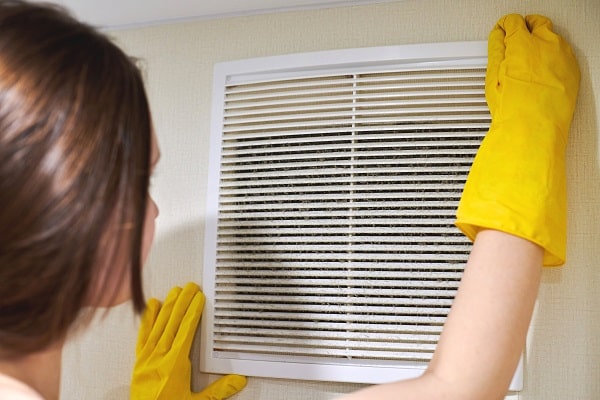Musty odors in the basement are a common yet often overlooked issue in many households. These smells, typically caused by mold and mildew, can significantly impact the comfort and health of residents. Addressing this problem is not just about eliminating a foul smell; it’s about creating a safer, healthier living environment. This post delves into effective strategies to identify, address, and prevent the recurrence of musty basement smells. By following these guidelines, homeowners can transform their damp and musty basements into fresh and pleasant spaces.
Identifying The Cause Of The Smells

The first step in tackling musty basement odors is to pinpoint their source. Often, these smells are due to mold and mildew thriving in damp conditions. Basements, being prone to higher humidity and lesser airflow, provide an ideal environment for these fungi. Identifying signs of water damage, leaks, or condensation is crucial. These issues not only contribute to unpleasant odors but can also pose significant health risks, particularly for individuals with allergies or respiratory issues. Additionally, a thorough inspection might reveal hidden mold growth behind walls or under flooring, necessitating more extensive remediation.
Understanding the type of smell can also offer clues. A persistent, earthy, or damp odor typically indicates a longstanding moisture problem, while a sharper, musty scent might suggest more recent water intrusion. Homeowners should also consider the history of their basement, including any flooding incidents or plumbing issues, as these can contribute to ongoing moisture problems. Regular inspections, especially after heavy rains or in humid seasons, can help in the early detection and prevention of these issues.
Initial Assessment Of The Basement

Conducting a thorough assessment of your basement is critical in formulating a plan to eliminate musty smells. Start by examining common problem areas such as pipes, windows, and corners for any signs of moisture or water damage. It’s essential to check both visible surfaces and hidden areas, like under carpets or behind stored items, for any dampness or mold growth. This assessment will not only help locate the source of the odor but also reveal any underlying issues that might require immediate attention, such as leaky pipes or cracks in the foundation.
Additionally, consider the overall condition and layout of your basement. Poorly organized or cluttered spaces can hinder airflow and trap moisture, exacerbating musty smells. This step is not just about finding the problem but also about assessing the overall health of your basement environment. If structural issues are found, such as cracks in the walls or floors, addressing these will be vital in preventing future moisture and odor problems. Remember, the goal is to not only remove the current smell but also to ensure a dry and healthy basement in the long run.
Basic Cleaning Techniques

Once the source of the musty smell is identified, it’s time to start cleaning. Begin by decluttering your basement removing any unnecessary items that may be harboring moisture or mold. This process will not only help in reducing odors but also improve the overall air quality of the space. When cleaning, focus on areas prone to moisture accumulation, such as corners, near pipes, and around windows. Use a mixture of water and mild soap or a mildew-specific cleaner to thoroughly clean these areas, ensuring all surfaces are dry afterward to prevent further mold growth.
For tougher mold spots, a solution of bleach and water can be effective, but it’s essential to use it cautiously and in a well-ventilated area. Non-porous surfaces like metal or glass can be cleaned more aggressively, but porous materials like wood or drywall may require gentler methods or even replacement if severely affected. Remember, the key is not just to mask the odor but to eliminate the source of the smell. Regular cleaning and maintenance of your basement are essential in keeping it dry and odor-free. Additionally, consider using dehumidifiers or fans during and after cleaning to help dry out the space and circulate air.
Improving Ventilation

Improving ventilation is a pivotal step in combating musty basement smells. Good airflow helps to disperse moisture and odors, creating a drier and fresher environment. Start by assessing the existing ventilation system in your basement. If it’s inadequate, consider installing additional vents or using mechanical aids like fans or air movers. Opening windows regularly can also help, especially during dry, sunny days. However, it’s important to balance natural ventilation with the outside humidity levels to avoid bringing in more moist air.
In cases where natural ventilation is limited, installing a basement exhaust fan can be a game changer. These fans help in continuously cycling out damp, stale air and bringing in fresh air from outside. Additionally, ensure that air vents are not blocked by furniture or storage items, as this can significantly hamper airflow. Regularly cleaning these vents will also prevent dust and mold spores from circulating in your basement. Remember, effective ventilation is not just about moving air; it’s about maintaining a consistent flow of dry, fresh air to prevent moisture buildup.
Controlling Humidity And Dampness

Managing humidity levels is crucial in a basement environment. Excess moisture is often the root cause of musty smells, and without controlling it, the problem will persist. A dehumidifier can be an effective tool in this regard, particularly in naturally damp areas. It’s crucial to select a dehumidifier of the right capacity for your basement size and moisture level. Regularly emptying and maintaining the dehumidifier ensures it operates efficiently. Beyond mechanical aids, simple actions like fixing leaky pipes and ensuring good drainage around your home can significantly reduce basement humidity.
Another aspect to consider is waterproofing your basement walls and floors. This can be a more involved process, but it effectively prevents outside moisture from seeping in. Materials like sealants or waterproof paints can be used for this purpose. Additionally, inspect and repair any cracks or gaps in the foundation or around windows to prevent water intrusion. Keep in mind that managing humidity is not a one-time task but an ongoing process. Regular checks and maintenance will help keep your basement dry and odor-free over time.
Using Odor Neutralizers And Absorbers

Odor neutralizers and absorbers play a key role in eliminating musty basement smells. These products work by trapping or chemically neutralizing odor molecules rather than just masking them. For a natural approach, items like activated charcoal, baking soda, or bowls of white vinegar can be effective. These can be placed around the basement, especially near the identified sources of the smell. Commercial odor neutralizers are also available and can be more potent, but it’s essential to use them according to the manufacturer’s instructions, considering any safety precautions.
When using these products, it’s important to distribute them evenly throughout the basement for maximum effectiveness. Regularly replacing or refreshing these odor absorbers ensures they remain effective. Remember, while these products can provide immediate relief from musty smells, they are most effective when used in conjunction with other methods like cleaning, ventilation, and humidity control. It’s also worth noting that if a particular odor persists despite these efforts, it may indicate an unresolved moisture issue or hidden mold growth, requiring further investigation.
Long-Term Solutions And Prevention

Addressing musty basement smells often requires long-term solutions and preventative measures. One effective strategy is waterproofing your basement. This involves sealing any cracks in the foundation, applying waterproof coatings to walls and floors, and ensuring proper exterior drainage. These steps help prevent water from entering the basement, thus mitigating the risk of mold and mildew growth. In cases of severe or persistent moisture issues, consulting with a professional for comprehensive waterproofing solutions may be necessary.
Regular maintenance is also crucial in preventing musty smells from returning. This includes routinely inspecting for leaks, ensuring gutters and downspouts are clear and functioning properly, and keeping the basement clean and well-ventilated. Additionally, reconsider how you use your basement; avoid storing items that are susceptible to mold or moisture damage, and maintain a regular cleaning schedule. By proactively addressing these factors, you can maintain a dry, fresh-smelling basement environment, safeguarding both your home’s structural integrity and the health of its occupants.
Take Action Against Basement Odors!
Eliminating musty smells from your basement is essential for a healthy and comfortable home environment. By understanding the causes and following the tips laid out in this article, you can effectively address and prevent these odors. Remember, consistent maintenance and proactive measures are key to keeping your basement fresh and inviting. Don’t let musty smells linger; start transforming your basement and enjoy a fresher, healthier living space!


